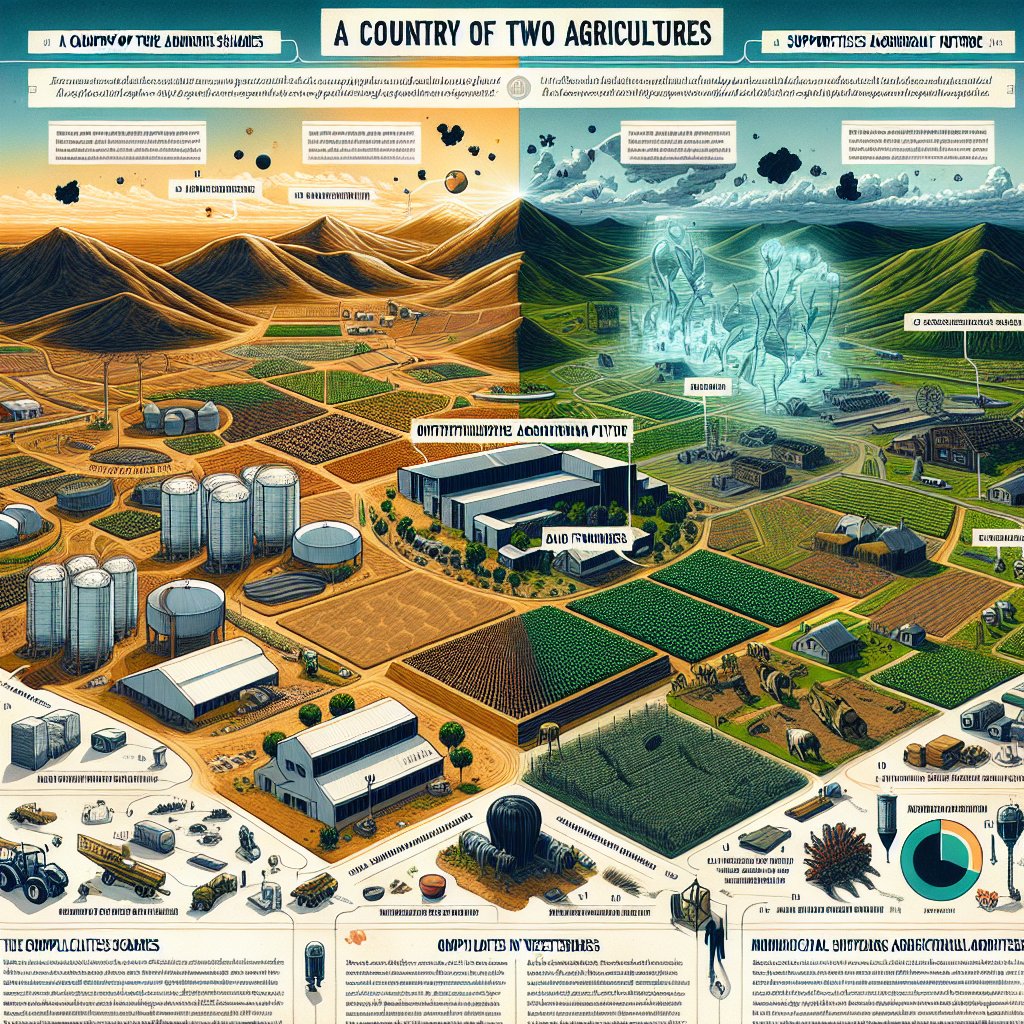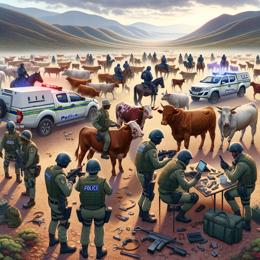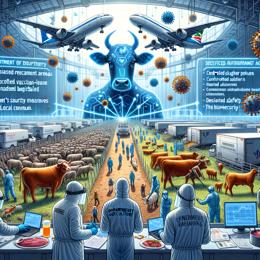Image created by AI
The Struggle for Prosperity: Untapped Potential on South Africa's Idle Farmland
South Africa's agricultural future teeters at the edge of promise and peril. Amidst this critical juncture, President Cyril Ramaphosa's recent parliamentary address underlines an ambitious intent: revitalize two million hectares of dormant state-owned farmland for black ownership, a stride towards inclusive growth within the agrarian sector.
The dormant lands, acquired through a former proactive strategy, have long eluded the hands of potential beneficiaries, affecting black farmers the hardest. Engagements with these farmers expose a common narrative: frustration stems from the inability to commercialize and grow due to insecure tenures. Such uncertainty undermines the access to financial instruments and resources that are vital to propelling a small-scale farm to a commercial level.
Contrastingly, history reflects a different tapestry where, during the 1940s, the National Party had initiated a supportive scheme: farmers were granted provisional leases, and successful cultivators were eventually allowed to own land at amenable rates. Today, the necessity of such a supportive system couldn't be more pronounced.
Despite success against odds, tales of corruption within the Department of Land Reform and Rural Development surface, depicting arbitrary expulsions of competent farmers from their land, which pivotally detracts from the goal of overcoming South Africa's agrarian duality—a notion I dissect thoroughly in my book "A Country of Two Agricultures."
Further, as I journeyed through the Karoo, the disparity in governance echoed across the sweeping landscape, with the Western Cape setting an example in infrastructural maintenance, while the Northern Cape embodies a bleaker scenario. Unkempt roads and incomplete housing projects signpost to issues residing in municipal management and bear heavy on the fragility of agritourism and agriculture, thus deepening the roots of unemployment and despair in local communities.
The proclamation of agrarian reform by President Ramaphosa is not a standalone mission—it intertwines with the effectiveness of provincial and local governance. The Agbiz/IDC Agribusiness Confidence Index continually points to local government shortcomings as obstacles to agribusiness prosperity.
In conclusion, South Africa stands at the nexus where the course taken could rejuvenate its agricultural sector and uplift black farmers, once envisioned custodians of prosperity. It is now imperative to convert presidential pledges into actionable strategies, earnestly address the discrepancies in local governance, and steer the farmlands from stagnation to vitality.










